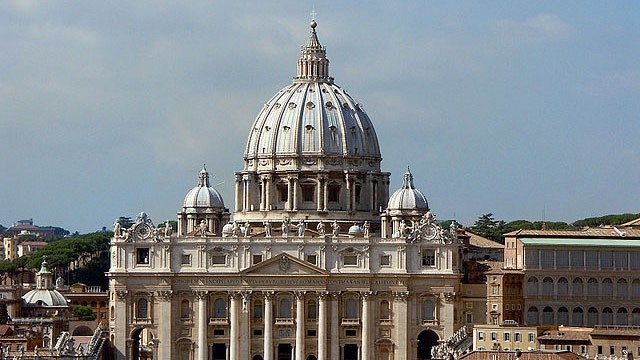Will Vatican Arrests Backfire?
By Candida Moss
On Monday, news broke that the Vatican is pursuing legal action against Spanish priest Monsignor Vallejo Balda and PR expert Francesca Chaouqui for a "serious betrayal of trust." According to news reports, the two former members of a papal commission established to reform church finances were arrested for allegedly leaking confidential documents to the authors of forthcoming books on the Vatican. The arrests are reminiscent of the "Vatileaks" scandal that plagued Pope Benedict XVI three years ago, which many feel contributed to his resignation. As with the Vatileaks scandal, this week's news concerns economic corruption and fiscal irresponsibility in the church, although the full impact of the alleged leaks will be learned only when the tell-all books are released. And, as with the Vatileaks scandal, the most visible response by the church has been to silence its whisteblowers and control the public relations fallout. Certainly the Vatican has the legal and ethical high ground here: It says that documents were stolen from it and leaked to the press. This kind of thing is a criminal offense, punishable by a prison term up to eight years and a fine of 5000 euros (about $5,500). Vatican spokesman the Rev. Federico Lombardi was clear that this was not an inside job intended to strengthen the Pope's position, but rather that the alleged leaking of these documents undermines the work of the church by creating "confusion." But none of that matters. The reputation of the Vatican succeeds or fails on the transparency issue. We can see this merely by looking at responses to various events in Francis' papacy. His enormous and almost unprecedented popularity has been built not only on his emphasis on the poor and the marginalized, his extension of mercy to all and his charismatic personality, but also on the air of openness and sincerity that surrounds his person. Francis not only meanders out to greet an adoring crowd, he also wanders wildly off-script. And in these moments of spontaneous preaching and unscheduled meet-and-greets he seems most approachable, most loving and most honest. It is this sense -- that Francis is honest and sincere -- that undergirds his success. His words of love and forgiveness for those who have had abortions, his concern for immigrants and his insistence on care for the environment have garnered him a great deal of attention. But very little about the content of what he said was new. Pope John Paul II extended mercy to those who had had abortions, the United States Conference of Catholic Bishops has been a vocal advocate for immigrants for decades, and Benedict XVI also stressed the dangers of destroying the environment. The difference is that people believe Francis. He seems sincere and transparent and because of that, his popularity ratings have remained consistently high. Francis' popularity suffered, however, during the Kim Davis affair. That conservative Christianity's poster girl for traditional marriage attended a meeting with him sent shock waves through the media. Francis is on the record as favoring traditional marriage, but Davis attending the meeting -- held with a larger group, according to a Vatican spokesman -- created a stir because it appeared, at first, that the Vatican was trying to conceal it. Francis' reputation was dented because, for the first time, people wondered if he is all that he seems. The news that the Vatican is actively pursuing charges against whistleblowers is sure to backfire. This is a pre-emptive strike against bad publicity, but it will do little to bolster the church's reputation. The speed with which whistleblowers were investigated and arrested contrasts with the glacial pace at which Vatican reforms take place and the mild punishments meted out to those accused of economic irresponsibility. The incident seems to suggest a pattern in which the church is more interested in punishing those who breach confidentiality than those who are financially corrupt. Ultimately, this will only draw more attention to the soon-to-be-released books and will cement the idea that, when it comes to transparency and fiscal responsibility, very little has changed.
|
.
Any original material on these pages is copyright © BishopAccountability.org 2004. Reproduce freely with attribution.
